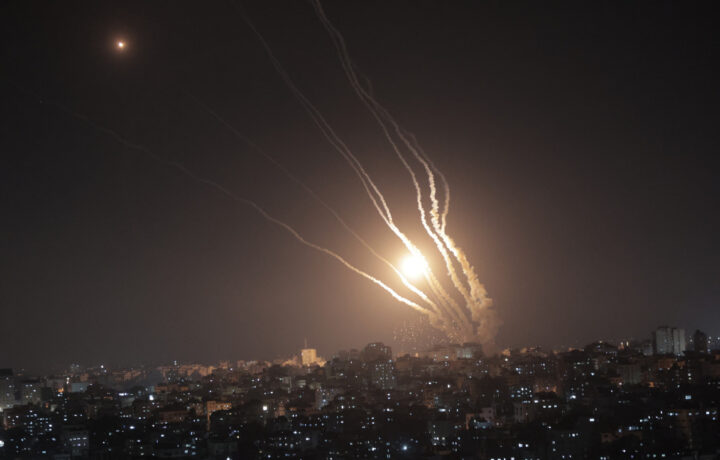After the 1948 Israeli Declaration of Independence and a year of fighting, a ceasefire was declared with temporary borders established. Jordan annexed what became known as the West Bank and Egypt occupied the Gaza Strip. Consequently, a Gaza–Egypt border no longer existed. After the 1967 Six-Day War, Israel conquered Gaza and Sinai Peninsula from Egypt.
In 1979, just 12 years later, Israel and Egypt signed a peace treaty that returned the Sinai to Egypt. A 100-meter-wide strip of land bordering Egypt and the Gaza Strip was established as a buffer zone, causing the division of the city of Rafah and its population.
An agreement known as the Oslo Accord was signed in 1993, called for a phased transfer of governance to the Palestinians. Israeli forces began to leave Gaza, with administration under Fatah-dominated Palestinian National Authority. As Israel withdrew from Gaza, the Rafah border crossing closed in 2005. Egypt controlled the Gaza–Egypt border and deployed 750 border guards along the border. Both Egypt and Israel pledged to work together to stem terrorism and arms smuggling. Later, the crossing opened under European Union’s (EU) supervision. The Israeli army kept video surveillance, retaining control over the movement of all goods in and out of Gaza.
A year later, Palestine held elections, with Hamas assuming power. Israel, the United Nations, U.S., EU, and Russia demanded that Hamas accept all previous agreements, recognizing Israel’s right to exist, and renouncing violence. Hamas refused, and Palestinian aid was redirected to non-governmental humanitarian organizations (NGO). The resulting political disorder and economic stagnation contributed to the 1.5 million Palestinian refugees.
Another blockade was subsequently imposed after Hamas took control of Gaza. Egypt’s President Hosni Mubarak opposed Hamas and strongly upheld the peace treaty with Israel. Due to ensuing hardships, many viewed the Gaza blockade as collective punishment for Palestinians in Gaza.
In 2011, under a new interim Egyptian government, the Rafah border crossing was reopened. Since then, goods have regularly entered Gaza from Egypt via the Rafah crossing. About half the material entering Gaza is through the Rafah Gate and the half via Erez, the only gate into Gaza from Israel.
Chaos and Confusion at the Rafah Gate
After the brutal Hamas assault on October 7, Israel closed the border crossing with Gaza, imposing a siege, blocking supplies of fuel, electricity, and water. With the crossings now closed, the coastal enclave is in a total blockade.
Egypt shut down the Rafah border crossing on October 10, after Israeli air strikes came near the crossing. With the border full of civilians desiring to flee to across the border, Israeli Defense Forces (IDF) claimed they struck a nearby underground smuggling tunnel. The IDF urged Palestinians to leave Gaza for Egypt stating, “Rafah crossing is still open. Anyone who can get out, I would advise them to get out.” Israel subsequently called for 1.1 million residents of northern Gaza to evacuate south.
However, a Palestinian border official stated that Egypt was blocking the crossing with concrete slabs. Egypt denied the report, stating the reason for the border closure was due to the Palestinian side being badly damaged by Israeli airstrikes. Experiencing severe economic turmoil, Egypt already hosts millions of migrants. They are obviously concerned over the prospect of hundreds of thousands of Palestinian refugees crossing over. Regardless, Egypt faces tremendous pressure to open the borders as Gaza continues to get bombed by Israeli strikes. A humanitarian crisis is expected to erupt any time, taking a toll on Egypt.
In the U.S.
Sunday, President Biden stated Israel must “go after Hamas,” and they must do everything possible to minimize civilian casualties. U.S. Secretary of State Blinken stated over the weekend that 600 U.S. nationals are thought to be trapped in Gaza. He said that the U.S. was working with Egypt, Israel, and the UN to get the Egyptian-controlled border crossing into Gaza reopened.
With tons of humanitarian supplies piling up in Egypt and no one able to cross, Israel denied reports of an agreed ceasefire allowing aid in and people with international passports to flee Gaza. Yesterday, Prime Minister Benjamin Netanyahu’s office stated, “There is currently no ceasefire.”



